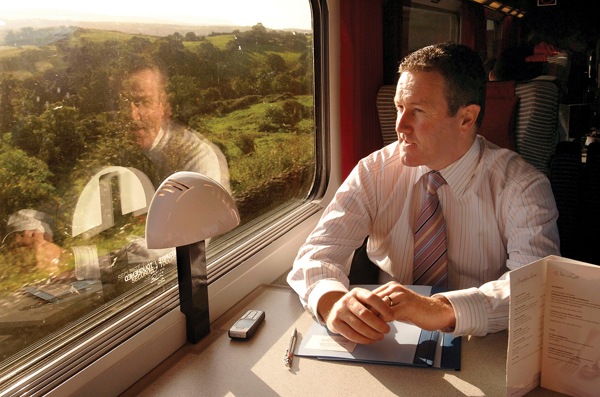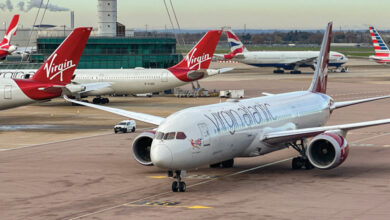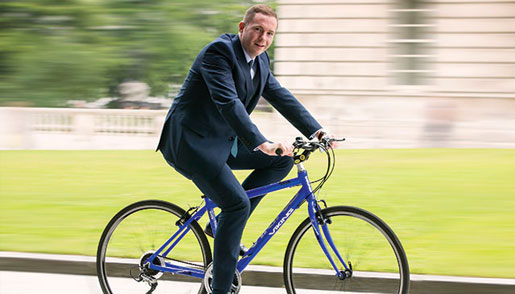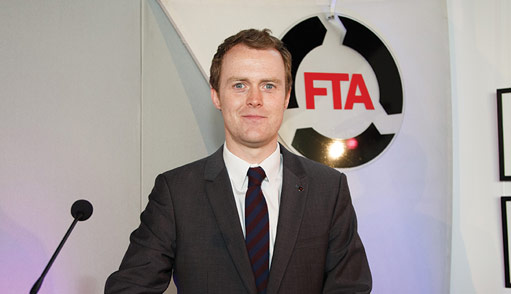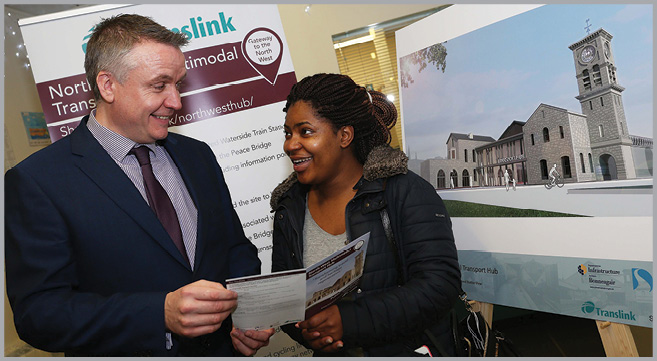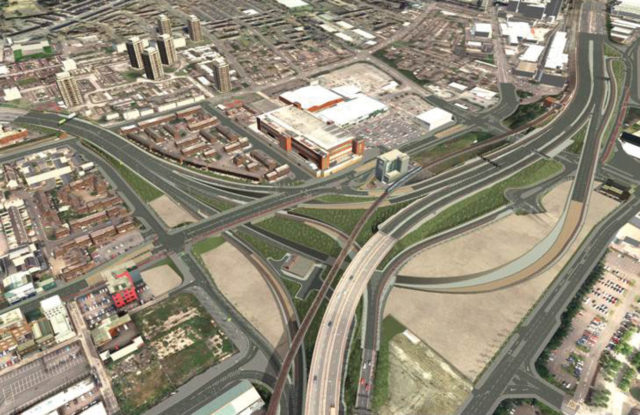Time to change direction
Regional Development Minister Conor Murphy puts forward his priorities for transport and outlines the main steps being taken to make the system more sustainable.
As minister responsible for transport, my focus is on ensuring the delivery of high quality transport and travel infrastructure and services which effectively support the economy of the region and help promote social inclusion in all areas, whether urban or rural.
I have on a number of occasions outlined my commitment to set out a new direction for transport and travel. Most recently, I had an opportunity in March to host a seminar in Brussels as part of the EU Sustainable Energy Week. At that seminar, I outlined the challenges which we face in delivering transport arrangements which meet our needs on a day-to-day basis but which are also future-proofed in terms of their longer-term impact on the region.
To move forward on this agenda, I established a new capability within my department last year with a specific priority of developing more sustainable travel and transport arrangements. As an initial step, a report was produced in December 2009, setting out the level of greenhouse gas emissions from transport in the North and identifying some of the key factors and trends impacting on transport demand.
The findings of that report made it clear that we need to take steps to bring about a substantial reduction in transport emissions so that we can contribute to the achievement of the Executive’s overall target on cutting CO2 emissions by 25 per cent below 1990 levels, by 2025. We must ensure that people change the way in which they travel. We want more people to use public transport, to walk or to cycle, rather than use the private car.
This is the key consideration in the programme of work which is now underway to establish and deliver an integrated policy framework to underpin more sustainable transport arrangements in the North. This work will feed in to the latest Regional Transportation Strategy which will provide a new strategic direction for future transportation arrangements.
Finance
If we are to achieve a shift to more sustainable transport modes, we will need to reconsider how we prioritise not only space on our roads but also our use of public funding. That is why I am committed to continuing a significant programme of investment to ensure we have a quality public transport network and supporting infrastructure in place.
Much has been done to improve public transport in recent years. Investment in new rolling stock for the railways and in upgrading lines has resulted in a significantly better rail service. A further 20 new trains are on order, to come into service from 2012 onwards, and work will continue to make track improvements – most notably on the line to Derry where a new track relay is planned for 2012-2013 – so that the trains can operate to their full capability, providing a more timely and reliable service.
Bus services are also continuing to improve, with new bus purchases ensuring a modern fleet which can provide frequent, reliable and comfortable services. And it is encouraging to see that, in spite of the economic downturn, passenger numbers, particularly on the rail network and on services in the Belfast urban area, have held up well.
I am also continuing to fund the rural community transport partnerships which are providing new transport opportunities for people with in rural areas and I am maintaining door-to-door services in urban areas for those who have difficulty accessing town services. My department has also set up an active travel forum to further promote cycling and walking as alternatives ways of travelling.
Future plans
Looking to the future, the preparatory work on the pilot rapid transit network for Belfast is moving forward. Public consultation has been carried out on the legislation needed to put the system in place, and I expect further consultation to take place early in 2011 on the details of the routes involved in the network covering west Belfast, east Belfast and Titanic Quarter.
Consultation has also taken place on proposals for changing the way in which public transport is planned, organised and delivered. My aim is to put arrangements in place which will result in improved service and value for money for consumers.
A public transport agency in my department would specify service requirements and secure their provision from public transport operators. Translink would continue to be the main provider of services, but would do so through a system of performance-based contracts. And services would be planned in a way which is responsive to local needs, in consultation with local interests. We want to see a fully integrated public transport system – ensuring that all the services join up effectively – whether provided by Translink, by the rural community transport partnerships, by urban door-to- door door providers, by private operators and by the rapid transit network when it is introduced in Belfast.
This emphasis on public transport arrangements does not mean that there will not be continuing investment in the roads network. A good quality road system is a key element in the transport infrastructure of the region and there is a need for the network to be improved and to be properly maintained. We must also ensure that we make the best use of the network to get the best possible value from it.
All of our freight in the North is transported by road and, while the scope for the re- introduction of rail freight will be examined, most freight movements are relatively short which means it is likely that freight transport will largely continue to be road- based. Within the arrangements of the North/South Ministerial Council, an all-island freight forum has been established, and we are working with the key stakeholders to identify and address the transport issues which impact on the efficient movement of goods which is such an important contributor to the economies of the island.
Both governments are also committed to important strategic roads projects such as the A5 and A8 which will considerably improve travel times. Some 90 per cent of public transport journeys are made by bus, and therefore depend on the road network.
In summary, transportation is at the heart of many aspects of our daily life. Looking to the future, I believe that we need to face up to new challenges and achieve the optimum balance so that our transport arrangements and our travel choices strengthen the economy, support communities, improve accessibility and also protect the environment, addressing the economic, societal and environmental imperatives of the region in a sustainable way.

